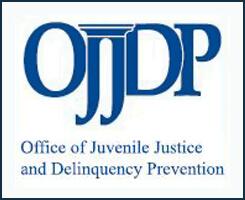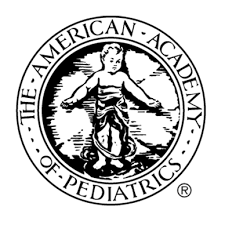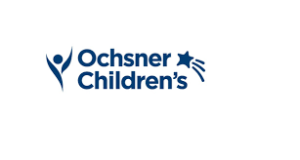Homepage
Important Information
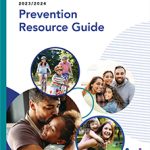 Transforming How We Deliver Prevention Services - The 2023/2024 Prevention Resource Guide was created with input from a broad representation of national experts, including national child abuse prevention partners and colleagues on the Federal Inter-Agency Work Group on Child Abuse and Neglect as well as parents with … Read More
Transforming How We Deliver Prevention Services - The 2023/2024 Prevention Resource Guide was created with input from a broad representation of national experts, including national child abuse prevention partners and colleagues on the Federal Inter-Agency Work Group on Child Abuse and Neglect as well as parents with … Read More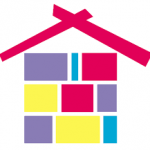 Child Abuse Prevention Month Outreach Toolkit 2024 - National Child Abuse Prevention Month: April 2024 Whether by proclamation, through social media, with graphics, or through other means, spreading the word about child abuse prevention lets your community know they can take action to strengthen families and help them … Read More
Child Abuse Prevention Month Outreach Toolkit 2024 - National Child Abuse Prevention Month: April 2024 Whether by proclamation, through social media, with graphics, or through other means, spreading the word about child abuse prevention lets your community know they can take action to strengthen families and help them … Read More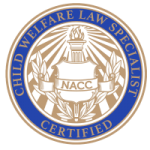 Child Welfare Law Specialist Certification - Child Welfare Law Specialist (CWLS) certification is a professional achievement that signifies an attorney’s specialized knowledge, skill, and verified expertise in the field of child welfare law. The specialization area is defined as “the practice of law representing children, parents … Read More
Child Welfare Law Specialist Certification - Child Welfare Law Specialist (CWLS) certification is a professional achievement that signifies an attorney’s specialized knowledge, skill, and verified expertise in the field of child welfare law. The specialization area is defined as “the practice of law representing children, parents … Read More
Upcoming Events
- Tags ABA Abuse Academy accommodations ACEs Act 378 ADA ADHD Adolescents Adoption adoptive parents Adults with Disabilities Adverse Adverse Childhood Experiences Advocacy Advocate advocay Affirming Placements African American Youth Agenda for Children Algorithms allied fields Alternative Residential Placements AMCHP american bar association Americans with Disabilities Act and mental illness Anti-discrimination Antiracism Anxiety Anxiety Disorders APHA APSAC ARP Art Art Therapy ASD Assessment Assessment Tools At-Risk At-risk Youth Attachment Theory Attorney Attorneys Autism Awareness Back to School Barriers Baton Rouge Behavior Health Bench Cards Benchbook Best Practices Beth Tyson Trauma BGC Attorneys Bias Birth Parents Black Children Black Families Black Male Black Maternal Health Week Boundary brain development Buddy Books Bullying Bureau of Family Health CAC Calming CAN CAPTA Care for Children caregiver Caregivers CASA Case Coordination case plan CCIP CEU Challenging Behavior chidlren Child Child Abuse child abuse and neglect child abuse prevention Child and Families Child Behavior Child Development Child Education Child Exploitation Child in Need of Care Child Maltreatment child neglect Child protective services Child Safety Child Sex Abuse Child Sex Trafficking Child Sexual Abuse Child Sexual Abuse Prevention Child Trend Child Trends Child Victims Child Welfare Child Welfare Assessment and Decision Making Model Child Welfare Court Child Welfare Information Gateway Child Welfare Law Child Welfare Law Specialist Child Welfare Policy Child Welfare Virtual Expo 2024 child welfare workers Child Well-Being Child Wellbeing childhood Development Children children development children with disabilities Children's Advocacy Children's Advocacy Center Children's Attorney Children's Attorneys Children's Cabinet Children's Code Children's Justice Act Children's Law Children's Rights children's trust fund Children’s Bureau Children’s Justice Task Force CINC CIP CIP Cafe Classroom classrooms CLE CMWS CNLI Co-Parenting Coalition for Juvenile Justice Coffee and Conversation Collaboration Communication communication Disorders Communication Skills Communities Community Compassion Complex Challenges complex trauma Conference Confidentiality Congregate Care Continuum of Care Coordinating Council on Juvenile and Delinquency Prevention Copping Skills Court Court Appointed Special Advocates Court Improvement Program Court Staff Courthouse Security Courts Covid 19 Critical Thinking Crossover Youth Cultural Competencies Culture CWADM CWLA CWLS CWVE Cybercrime Data DCFS deaf Decency Delinquency Department of Education Department of Justice Depression Developmental Disabilities Difficult People Digital Dialogue Disabilities Disability Rights Louisiana Disabled Parents Disaster Preparedness Disparate Outcomes Disproportionality Dispute Resolution District Attorneys Diversity Domestic Abuse Drug abuse Drug Courts Drug use Drugs Dyslexia Early Chilldhood Early Intervention EarlySteps Eating Disorders Eating Healthy ECE Economic Supports Education Education Program Educators Employment Empowering Engagement Equality Equity ESY Ethics Ethnicity Every Student Succeeds Acts Evidence Evidence Corroboration Exploitation Extended Foster Care Faith-based Families Families helping families Family family center Family Court Family Dynamics Family Focus Family Health Family Preservation Family support Family Treatment Court family violence Family Visitation family well being FASD Fatherhood Fathers FEMA Fetal Alchohol Spectrum Disorder Fetal Alcohol Spectrum Disorders FFTA Financial Stability FINS FNF Forensic Interviewing Foster Care foster child Foster Children Foster Parent Foster Parents Foster Youth FPT FPTM FTC FTM Fundraisers Gangs generatins Generations United Grandfamilies Grandparent grandparents Grandparents Raising Grandchildren grants Grief Guardianship Gun Violence HCBS he Community Outreach Specialist Health health care Healthy Behaviors High School Historical Racism Historical Trauma Homelessness Housing Stability Human Resources Human Trafficking IAP ICAC Task Force ICWA IDEA IEP IEP meeting Immigration Implicit Bias Incarcerated Parents Incarerated Parents Inclusion Inclusive Indian Child Welfare Act Indigenous People Indigent Defenders Individualized Education Plan Individuals with Disabilities Education Act Inequality infants Innocent Justice Foundation Intellectual Disability Intergenerational Internet Crimes Internet Crimes Against Children Internet Safety Intervention Interviewing Investigation Jobs Judge Judges Judicial Juvenile Justice Juvenile Justice and Delinquency Prevention Act Juvenile Law Juvenile Sex Trafficking Kinship Kinship Care Kinship Caregiver Kinship Navigator LADBP Language Disorders Law law enforcement lawyer LCTF LCWTA leaders leadership Learning Legal Legal Advocacy Legislative Update LGBTQ LGBTQIA+ Loneliness Loss of Parent or Caregiver Louisiana Louisiana Children's Trust Fund Louisiana Department of Education Louisiana Department of Health Low Income LRS LSU Maltreatment Mandated Reporter Responsibilities MDT Medicaid medical Medication medice Meetings Mental Health Mental Health Alliance Mental Heath Mental Wellness Mentor Mentoring Mentoring Programs Mentors Mindspring Minorities Missing Children Motions Multi-Disciplinary Team Multidisciplinary Teams Music NAA NACC National National Center on Substance Abuse and Child Welfare National Child Welfare Workforce Institute National Gang Center National IV-E Roundtable National Tribal Native American NCCAN NCFA NCJFCJ NCSACW NDAA Neglect Neurodiversity NICWA Non-Profit Nonprofits NTTAC Nurses nursing law nxiety Disorders OAYI OCD OCDD OJJDP Online Networking OPD opioid Oppositional Defiant Disorder Oppression Order of the Court ORPC Outcomes OVC Overmedication Pandemic Parent Attorneys Parent Child Interaction Therapy Parent Child Interaction Therapy (PCIT) parental substance abuse Parenting Parenting Education parenting educators Parents Peer Support People with Disabilities Perinatal Mental Health Permanence Permanency Permanency & Well-Being Permanency and Well-Being personal growth Personality Disorders philanthropy Physical abuse physical disability Planning Planning Tools PMH POC Policy Positive Behavior Management Positive Relationships Positive youth development Post Covid Poverty Practice Prenatal Substance Exposure Prevention Prison Privacy Professionals Prosecution Prosecutors Protective Factors Psychiatric Medication PTSD Public Defenders Punishment Putting People First QPI Quality Improvement Race Racial Racial Disparity Racism RAISE RAPT Rasicm Reasonable Efforts Recovery Regulating Complex Emotions Relationships Research Resilience Resiliency Resources Rights Risk Risk Assessment Runaway Rural Safety Safety and Well-Being Safety Kinship safety plan School Schools Secondary Traumatic Stress Section 504 self-advocacy Self-care Self-Esteem Sextortion Sexual Abuse sexual violence Social Justice Social Skills social work Social Worker Social Workers SOE Southwest LA SPAN Speaker Series Special Education Special Needs Stakeholder Stigma Strategies Strengthening Families Stress Student students Students with Disabilities Substance Abuse Substance Abuse Disorder Substance Abuse Exposed Infants Substance Misuse Suicide Suicide Pevention Support Support Group Systemic Racism Task Force TBRI Teacher Union Teachers Technology Teen Dating Teenage Parents Teens Testing The Opioid Affected Youth Initiative the Rehabilitation Act therapy Tiered Waiver Title IV-E tools Trafficking trainer Trainig Training Transition Transitioning Transracial Children Trauma Trauma Center Trauma Focused Cognitive trauma history Trauma-Informed Trauma-informed Practice Trauma-Responsive Traumatic Stress Traumatized Children Trial Skills Tribal Trust-Based Relational Intervention Unaccompanied Unemployment Unsafe UST Victims Victims of Technology-Facilitated Crimes Violence Violence Against Children Violence prevention Virtual Voting Rights Waivers Webinar Well Being Weninar Women Women United of Southeast Louisiana Worker Recognition Workforce Development YJAM Young Adult Young Child Youth Youth Health Youth Justice
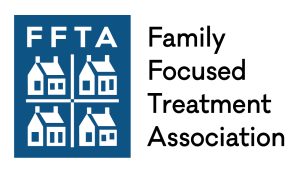
Join FFTA in Washington, D.C. as we share information and resources at the FFTA Annual Public Policy Institute. Empowering collaborative change by uniting cross sector professionals, dedicated staff, passionate advocates, those with lived expertise, and the community to shape and advance inclusive polices that prioritize the well-being of children, families, and communities. Together, we can ensure a collective impact on our future.
The two-day program will include a concentrated educational session Monday morning, excursions into downtown Washington, D.C. Monday afternoon and impactful legislative meetings on Tuesday morning.
Key Institute Topics:
- Mental & Behavioral Health Challenges
- Poverty and Child Well-being
- Trauma Informed Treatment
- Prevention Services
- Kinship and Relative Care

Join Child Trends for a webinar presentation on Wednesday May 8, from 2:00 pm ET to 3:00 pm ET to review learnings from our recently released 100-year Review of Research on Black Families. The review covers economic, demographic, and political shifts from 1920 to 2020, examining decade by decade the evolution of research methods, priorities, and funding over time. Study authors Dr. Chrishana M. Lloyd and Dr. Sara Shaw will highlight: the historical role of public agencies and academia in supporting research on Black families and the implications; how Black family demographics have changed over time; and the ways in which research, policy, and practice must shift to attend to historical and contemporary challenges important for Black families. Participants will also hear reactions from policy and research experts and plans for next steps related to the work. We look forward to sharing this groundbreaking work with you. Link to the report: https://www.childtrends.org/publications/100-year-research-black-families
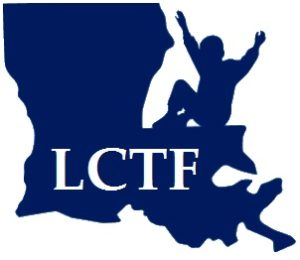
Substance Abuse: Understanding its Impact on Children and Families
The LA Children’s Trust Fund presents the monthly Coffee and Conversations series focused on the the of Substance Use and Understanding the the Impact on Children and Families, with our guest speaker, Dr. Joy Bracey with CADA Prevention and Recovery Center. Attend this session to learn more information to build a comprehensive understanding of the multifaceted impact of substance use on children and families. Participants will gain insights into the challenges faced by families affected by substance use and learn how to effectively support them. Learn practical tools and interventions to support families dealing with substance abuse, including effective communications techniques, resources for accessing support services, and strategies for building a supportive community network.
About the guest speaker:
Joy Bracey, Ed.D., LPC, NCC attained her Doctor of Education in Executive Leadership at the University of Holy Cross in New Orleans, Louisiana and her Master of Education in Counseling at the University of New Orleans. She is a Licensed Professional Counselor, a National Certified Counselor, and an adjunct professor at Teacher’s College- Columbia University, teaching self-awareness to master’s degree students. Dr. Joy allowed her calling to help others to shape her career, providing mental health services and addiction treatment for New Orleans’ most vulnerable communities. For the past 12 years, she has served as the President & CEO of CADA Prevention & Recovery Center, a non-profit addiction treatment & mental health agency, while serving in leadership roles on numerous local and national boards, coalitions, and advisory councils. Dr. Joy uses her background and education to teach self-love, inner critic healing, inner child healing, emotional skills, mindfulness, and self-awareness online, in workshops and retreats, and through public speaking engagements. She provides coaching and counseling to individuals to help them along on their journey of discovering who they are, so they can fully embrace self-compassion and experience inner peace.
Sign up today! You must be present for over 50% of the presentation for us to award credits.

Faces Behind the Files:
Lived Experience within the Child Welfare System
The directives that states are receiving from the federal Children’s Bureau emphasize engaging persons who have lived experience with a Child in Need of Care case including parents and children or youth. Persons who have first-hand contact with the Department of Children and Family Services (DCFS) and the legal system can and should help guide and direct efforts to improve our child welfare system. Parents and children bring clarity to the broader implications of our actions, allowing us to improve our approach to individuals and their cases. Samantha Morrison and Jarvis Spearman will share about their experiences in the Louisiana child welfare system. Former assistant district attorney Sarah Hood will give her perspective as well.
Speakers:
Samantha M. Morrison, Peer and Equity Specialist, Pelican Center for Children and Families is the Peer and Equity Specialist for the Pelican Center’s Court Improvement Program in which she has been working for the past six months in this position. Ms. Morrison is a certified Peer Support Specialist (with lived experience) and a previous background as a Peer Support Coordinator with East Baton Rouge Parish Family Preservation Court under Judge Adam Haney. Faced with substance abuse challenges, her 3 daughters were removed from her home and placed in the care of her parents until she decided to change her life. Ms. Morrison has been clean and sober for almost 4 years. In her spare time, she enjoys traveling, spending time with her children, helping people and reading. She is currently working on her Bachelor’s Degree in Education with aspirations to gain her Doctorate Degree in History and attend Law School.
And
Jarvis Spearman, LMSW, is a Grambling State University graduate and is currently working on his “Doctorate in Social Work” while working towards his LCSW (clinical social work license). He serves as a Mental Health Professional at Swanson Center for Youth, counseling boys in a secure juvenile setting, and is also a “Certified Foster Parent” fostering teen boys. He served as a Bereavement Coordinator with Heart of Hospice in Monroe for three years, and during that time, he helped families and patients before and after the death of a loved one. Jarvis served as an assistant counselor at Johnny Robinson Boys Home, working under the licensed clinical social worker for two years, providing individual, group, and family sessions to clients and families. Being raised in the foster care system for 12 years with his siblings, he dedicated his time and passion to working at Louisiana Methodist Children’s Home, giving back to the life he came from. There, Jarvis worked in the Life Skills Program in Ruston, LA, for 6.5 years as a Peer Support Specialist and Advocate for the Louisiana Foster Care System. He held the title of President for the State of Louisiana Youth Advocacy group known as LEAF (Louisiana Elite Advocacy Force) for many years, serving as a voice for former and current foster youth advocating to ensure the betterment of the foster care system. Jarvis has served as a speaker and panelist at multiple conferences throughout Louisiana, such as the QPI (Quality Parenting Initiative) Conference held in New Orleans, the Together We Can Conference in Lafayette, LA, and the Foster Parent Conference. He has also participated actively in a Task Force dealing with youth aging out of foster care in Louisiana. In 2017, Jarvis participated in the Foster Youth Intern Program at the State Capitol in Baton Rouge, LA. There, he gave a wonderful testimony that touched everyone in attendance. From this internship experience, he was a part of the force that pushed Senate Bill 109 into place, which extended foster care to age 21 for all youth in care on their 18th birthday. This voluntary program allows the Louisiana Department of Children and Family Services (DCFS) to provide intensive services to aid youths’ transition to adulthood. As President of the LEAF board, Jarvis and his peers got the opportunity to create Louisiana’s first Foster Youth Bill of Rights. Jarvis has gained many awards for his hard work. Jarvis has traveled out of the country on mission trips to serve and be a beacon of happiness to others. Through it all, he strives to be a better individual by giving back to the community and being a light in the lives of vulnerable populations.
With
Sarah Hood, J.D., is the Deputy Judicial Administrator and Hearing Officer, Caddo Parish Juvenile Court. Sarah Midboe Hood was raised in Baton Rouge, Louisiana and graduated from McKinley Senior High School in 1997. She received her Bachelor of Arts degree from Louisiana Tech University in 2001 and her Juris Doctorate and Bachelor of Civil Law degrees from the Louisiana State University Paul M. Hebert Law Center in 2004. Upon graduation, Sarah served as the judicial law clerk for the Thirtieth Judicial District Court, located in Leesville, Louisiana. In 2006, she joined the Caddo Parish District Attorney’s Office and served in many roles during her sixteen-year tenure as an Assistant District Attorney. Some of her work included serving as the Section Chief of the Criminal Drug Section and Section Chief of Criminal Offenses (Section 3), where she prosecuted major felonies, death penalty cases, homicides and aggravated sexual offenses. Her last six years in the District Attorney’s Office, she was the sole prosecutor of Child in Need of Care (“CINC”) cases for Caddo Parish. In 2022, Sarah accepted the position of, and currently serves, as the Deputy Judicial Administrator and a Hearing Officer for the Caddo Parish Juvenile Court. Sarah is married to Michael Hood, who is the Assistant Chief over Investigations and the Bomb Squad Commander for the Shreveport Fire Department and they have two children, Hunter (8) and Elizabeth (4). They attend Cypress Baptist Church and reside in Benton, Louisiana.
Agenda:
12-12:40 pm Lived Experience within the Child Welfare System
12:40-12:50 pm A Prosecutor’s Perspective
12:50-1:00 pm Questions & Discussion
Objectives:
Learn about the impact of Child in Need of Care cases and court experiences on individuals and families.
Understand the broader implications of child welfare stakeholder actions on parents and children.

Transforming Child Welfare:
The Aims and Gains of Social Movements and the Vision and Voice of Everyday Lives
The National IV-E Roundtable for Child Welfare Training and Education is an annual gathering of representatives from public and tribal child welfare agencies and their university partners. Our goal is to share our resources to build a strong child welfare workforce through training and education. The Vermont Child Welfare Training Partnership is pleased to host this year’s National IV-E Roundtable for Child Welfare Training and Education in Burlington Vermont, May 21st through May 23rd, 2024

Join the Children’s Bureau and the Capacity Building Center for States for the 2024 Child Welfare Virtual Expo (CWVE), Leading From Where You Are.
Transformational leadership happens at every level within child welfare systems. Everyone can inspire positive change and lead partners and colleagues to meaningfully engage and serve children, young people, and families. Join us at the 2024 CWVE to build awareness of key components of transformational leadership and system change in child welfare and learn directly from jurisdictions as diverse speakers share their inspirational leadership journeys.
At the CWVE 2024, you and your colleagues will be able to:
- Discover how ensuring diversity at all levels of child welfare leadership contributes to workforce resilience, improved community relations, and better outcomes for children, young people, and families in child welfare
- Learn how to create psychologically safe cultures and climates at child welfare agencies that prioritize the well-being of all child welfare professionals
- Access resources and practical tools you can use to improve effective leadership practices and activities related to inspirational leadership
- Connect with peers and subject matter experts in child welfare leadership and workforce resilience
Join individually or as a group to support shared learning! Take advantage of this unique opportunity to learn strategies to strengthen your child welfare workforce, network with peers and experts, and gain tools to improve recruitment and retention practices.
Space at CWVE 2024 is limited. Register now and reserve your virtual seat to participate as an individual or a team and learn together.


